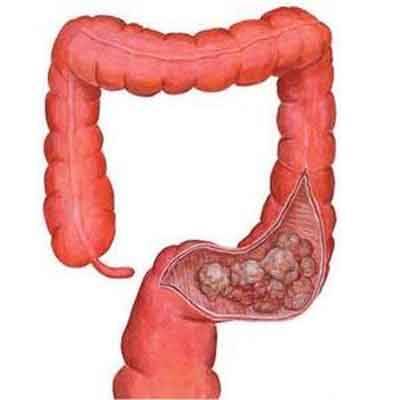
Colorectal cancer is divided into two categories: colon cancer and rectal cancer. Most colon cancer patients are middle-aged or above, with the average age being 45 years old, and about 5% of patients are under 30 years old. Colon cancer patients may have no symptoms in the early stages, but as the disease progresses, a series of cancer symptoms will appear. Clinically, the middle part of the transverse colon is used as the boundary, and the colon is divided into the left colon and the right colon.
Due to the different locations of the cancer, the manifestations are different.

Right colon cancer: Because the intestinal cavity is thick and the feces in the intestine is liquid, cancers in this section of the intestine are mostly ulcer-shaped or cauliflower-shaped, and ring-shaped stenosis is rare, so obstruction does not often occur. However, these cancers often rupture, bleed, become infected secondaryly, and are accompanied by toxin absorption.
The main clinical manifestations are:
1. Abdominal pain or discomfort, often located in the right lower abdomen, much like an attack of chronic appendicitis. If the tumor is located in the hepatic flexure and the stool is dry and lumpy, colic may also occur, and attention should be paid to distinguishing it from chronic cholecystitis. About 50% of patients suffer from loss of appetite, fullness, belching, nausea and vomiting.
The article is not finished. Click on the next page to continue.
The article is not finished. Click on the next page to continue.
Next page


















